I had to report the mean running time of a java method. I do it the following way
//method start
long startTime = System.nanoTime();
//method body here ...
long estimationTime = System.nanoTime() - startTime;
//method end
I run the method many many times, log the results and then report the mean and variance of running time in microseconds.
Here is the problem I got the following values (very large spikes exist)

note that other values are not zeros (zoom in reveals it)

My Questions:
- What the main cause of these outliers (spikes)?
- How to report the running time accurately in a case like this?
Take a look at the method body (For the curious)
TraceRecord resultRecord = new TraceRecord();
resultRecord.setTimeStamp(timeStamp);
resultRecord.setUserID(userID);
if (sensorValue.getSensorType() == SensorType.WIFI) {
ArrayList<WifiBaseStation> wifiAPsInRange = new ArrayList<WifiBaseStation>();
for (int i = 0; i < sensorValue.getBaseStationsIdentifiers().length; i++) {
WifiBaseStation wifiAP = new WifiBaseStation(sensorValue.getRepresentativeName(i),
sensorValue.getBaseStationsIdentifier(i));
wifiAP.getSignalStrengthsList().add(sensorValue.getSignalValue(i));
wifiAPsInRange.add(wifiAP);
}
if (wifiAPsInRange.size() > 0) {
double averageLong = 0;
double averageLat = 0;
int matchedCount = 0;
for (WifiBaseStation bs : wifiAPsInRange) {
WifiBaseStation bsFromTable = WiFiUniqueWarDrivingTable.Get(bs.getMacAddress());
if (bsFromTable != null) {
GPSLocation locationFromTable = bsFromTable.getBaseStationLocationUsingAverage();
if (locationFromTable != null) {
averageLong += locationFromTable.getLongitude();
averageLat += locationFromTable.getLatitude();
matchedCount++;
}else{
averageLong++;
averageLong--;
}
}else{
averageLong++;
averageLong--;
}
}
if (averageLong != 0) {
averageLong /= matchedCount;
}
if (averageLat != 0) {
averageLat /= matchedCount;
}
if (averageLat != 0 && averageLong != 0) {
resultRecord.setLocationPoint(new GPSLocation(averageLong, averageLat, 0));
} else {
return null;
}
}
}